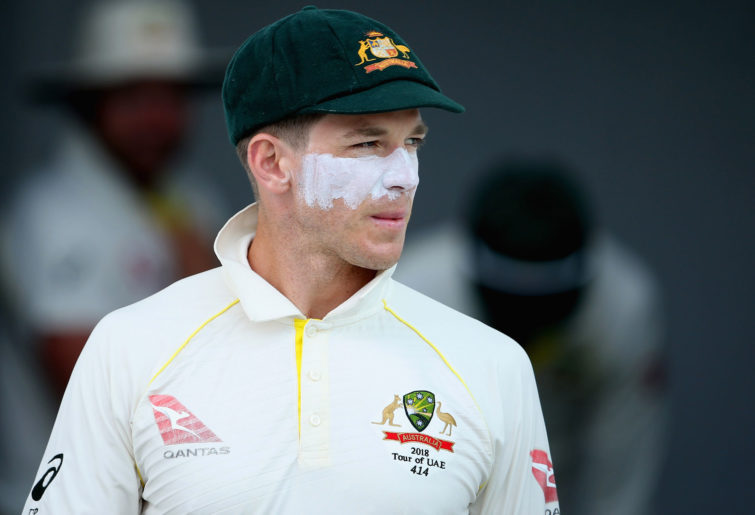Stoinis clubs stunning IPL ton, makes tough chase look a cinch with clutch final-over barrage
Marcus Stoinis produced his first IPL century and it was a beauty. He went 6, 4, 4, 4 to finish off the Lucknow Super…
Kerry Packer loved sport. He also loved the media and he knew a thing or two about it. He combined those two loves which now has a huge bearing on how sport is presented, especially in Australia.
Since the 1970s, sport on TV has continued to develop and progress. Players are now spoken to while playing. Interviews are held straight after an innings and the ‘viewer experience’ has become more insightful and more entertaining – the networks hope – helping get eyeballs on screens.
On Day 3 in the Perth Test, Australian captain Tim Paine was heard on the stump microphone talking to Indian opener Murali Vijay, on whether or not he likes Virat Kohli.
Should the viewer be hearing what the player is saying?
Let’s explore the arguments for the stump microphones first. Certainly it’s one way to keep the players’ behaviour to where it should be. If viewers hear a player say something that raises eyebrows, or worse, then it’s no longer a ‘he says, she says’ case, it is clear cut. Certainly this a good thing.
There has always been a mystery about ‘who is a good sledger?’, or wonder what they are saying. Hearing the players gives you that insight, and possibly a laugh along the way.
There is a case against the microphones along side the stumps being turned up. The comments from Tim Paine to Murali Vijay, suggesting Virat Kohli was ‘unlikeable’, was insulting. It has the potential to create a division between two teams.
Where as that comment could have gone straight over Vijay’s head or he may not have bothered with it in the past, in which the comment itself just disappears into the cricket atmosphere, now that isn’t the case.
It would be hard for Virat to greet Paine with a warm greeting at the toss in Melbourne knowing what Paine had said.
One can’t help but be concerned that broadcasters are going into dangerous waters, because sooner or later, something is going to be said ‘in the heat of the moment’ that shouldn’t have gone to air. The players aren’t expected to know when the microphones are on and not, and shouldn’t have to spend six hours aware that they are commentating whilst playing.

Tim Paine of Australia. (Photo by Francois Nel/Getty Images)
Also the argument that if it keeps the players in line, then it’s a good thing, tends to ignore the fact we are dealing with adults and professionals – not children who may need discipline and guidance.
The viewer gets a more in-depth experience than ever before. But in doing so, some of the mystery has been taken away.
There needs to be a lot of responsibility from the broadcaster so the player is protected. Otherwise, one day, it may go wrong, and to solely blame the player for it, would be quite unfair.